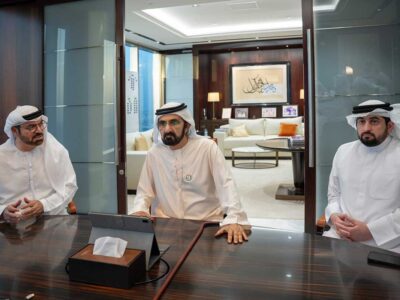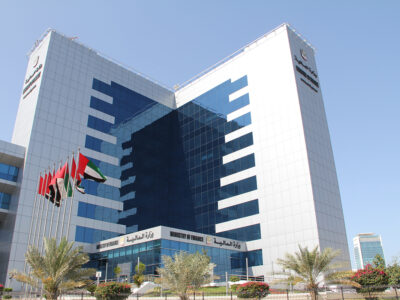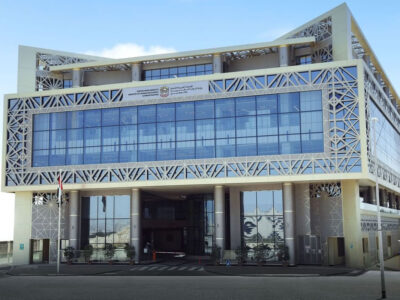UAE Ministry of Economy (MOE) launched a unified registry for family businesses accompanied by four new cabinet resolutions. These resolutions aim to elevate the standards of governance for family companies and enhance the competitiveness of the legislative framework governing the sector.
The initiative is also aimed at ensuring family businesses’ sustainability and leadership in line with the country’s vision.
Abdullah bin Touq Al Marri, Minister of Economy, emphasised the pivotal role of family businesses in fostering global economic growth and sustainability.
Globally, family businesses contribute to 70 percent of private sector companies, employ 60 percent of the workforce, and contribute to 70 percent of the global GDP.
In the UAE, these businesses constitute 40 percent of the national GDP, representing 90 percent of the total number of private companies, emphasising their significance in achieving the national goal to double the country’s GDP to AED3 trillion by 2031.
UAE’s family business growth initiative
“Thanks to the UAE’s wise leadership’s vision, a solid foundation has been laid to ensure the sustainability of family businesses and the growth of their businesses in the coming decades. The development of the family businesses sector in the UAE is being carried out in accordance with international best practices in this regard, through the promulgation of several legislation, proactive policies, initiatives and pioneering programmes, most notably the ‘Thabat’ programme,” Bin Touq said, WAM reported.
It is designed to ensure the sustainable growth of family enterprises in the country’s markets across successive generations and encourage them to expand into new economic sectors by taking advantage of all the opportunities and possibilities offered by the programme,” he added.
He added, “The UAE’s family businesses are one of the main drivers promoting the growth and sustainability of the national economy, thus supporting the country’s transition towards a knowledge-based, innovative future economy. The launch of the unified registry for the sector is an important step forward in strengthening its governance and regulating registration procedures.”
“This is necessary to build an integrated work system for family enterprises in the UAE in addition to the advanced legislation and technology infrastructure they currently benefit from. The introduction of the Family Charter is also key to the success and continuity of future generations of family companies, as it defines the rules of family ownership, goals and values, including mechanisms for assessing quotas and distribution of profits,” he explained.

The unified registry is a crucial step forward in fortifying the governance of the sector and regulating registration procedures. It complements the existing advanced legislation and technology infrastructure, providing a comprehensive database overseen by the Ministry of Economy.
Abdullah Ahmed Al Saleh, Under-Secretary of the Ministry of Economy, said: “The UAE continues to develop sustainable economic policies for the development of the family businesses sector given its significance as a key driver of national economic growth, while also strengthening its competitiveness regionally and globally.”
“We focus on two main pillars for the development of an integrated family business ecosystem in the country: the first is the legislative aspect and the development of robust legislation for family enterprises through the promulgation of proactive laws and leadership policies at the regional and global levels. The Federal Decree-Law No. 37 of 2022 on Family Businesses is an example, which established a roadmap for the governance of family enterprises and the regulation of their ownership and operations in the country,” he added.
He continued, “The second area of focus is the launch of several policies, initiatives and programmes to facilitate the expansion of family companies. ‘Thabat,’ a first-of-its-kind programme in the Middle East, was launched to bring about a qualitative shift in the country’s family businesses sector and encourage them to shift towards new economic sectors.”
According to Al Saleh, the last few days has witnessed the largest generation of first-generation family businesses under the programme, aiming to transform 200 projects into “fast growing startups by 2030.”

The launch of the registry falls in line with the Cabinet Resolution No. 109 of 2023 and includes the registration of family businesses, the issuance and revocation of leadership certificates, and business status updates.
Process to register a family business in the registry
- The majority shareholders of the family-owned company apply for registration in the official registry through the relevant authority in each emirate.
- The relevant authority in the emirate, which also covers free zones, verifies that the family company meets all the specified regulations and requirements.
- The relevant authority is in charge of connecting and sharing the mentioned data with the family-owned company, and any changes or updates made to it are communicated to the Ministry of Economy.
- The Department of the Unified Registry at the Ministry, after receiving the required data and documents, is responsible for managing the registration of the family company, and a certificate is issued thereof.
- If there is no digital connection for data sharing between the Ministry and the relevant authority, the data must be shared using any other coordinated method between the two parties within three working days.
Process to register a family business in the registry
Additionally, partners holding a minimum of three-quarter shares can request to deregister the company.
Upon receiving such a request, the competent authority reviews and shares it with the Ministry of Economy. Subsequently, the Ministry cancels the family company’s registration certificate, notifying the competent authority of the cancellation.
Two scenarios prompt the deregistration of a family company: either at the request of an interested party or by a decision from the competent authority. Reasons for deregistration may include a drop in family members’ share ownership below the majority or the specified percentage in the founding contract, or if inaccurate information or documents are submitted, potentially leading to the company’s deregistration.
Those affected have the right to object to the deregistration by submitting a grievance to the Ministry within 15 working days.

Furthermore, Abdullah Ahmed Al Saleh, Under-Secretary of the Ministry of Economy, highlighted three additional resolutions aimed at fostering a sustainable environment for family businesses’ growth and global leadership.
Cabinet Decision No. 106 of 2023 mandates the online registration of the family charter on the Ministry’s website, establishing specific rules on ownership, objectives, family values, and mechanisms for evaluating shares and dividends.
Cabinet Decision No. 107 of 2021 addresses family companies purchasing their shares, outlining a detailed process that involves the approval of the purchase by the family company’s general assembly.
The decision emphasises transparency, requiring the family company to seek approval from the relevant authority, adhere to obligations set by the authority, and obtain consent from relevant government bodies if applicable.
Cabinet Decision No. 108 of 2023 focuses on the conditions and terms related to the multiple categories of shares of family companies.
This resolution establishes controls for the issuance of multiple categories of shares, specifying rights and privileges allocated to each category. Family companies are granted the flexibility to modify or revoke share categories or associated rights, subject to the approval of a 75 percent or more majority vote of partners with voting rights.
Al Saleh affirmed that these resolutions aim to enhance flexibility and facilitate the operations of family businesses in the UAE, supporting their expansion across various sectors.








